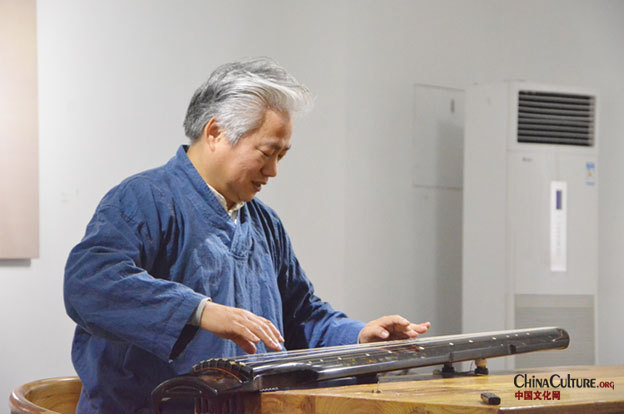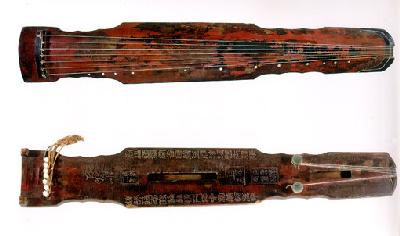
Fang Jinlong, vice-president of the Asian Artist League, plays guqin at the Taihe Art Gallery at 798 Art Zone in Beijing, on March 17, 2014.

The guqin is also called "qin", "yaoqin","yuqin" and "qin with seven strings", names derived from the Chunqiu Dynasty and has a history of more than 3,000 years. It was listed in oral and intangible heritage of humanity by UNESCO in 2003. The plucked seven-string instrument of the zither family is sometimes called "the father of Chinese music".
The guqin is regarded as one of the most expressive zithers in the world. Its beautiful, relaxing tones and expressive complexity have made it the ancient scholar's instrument of choice. Confucius and other noblemen were masters of the guqin.
Among ancient melodies, there are vehement and impassioned ones such as XiaoXiangShuiYun, indignant and wrathful ones, including GangLingSan, desolate and dreary ones, for example YangGuanSanDie, grieving and plaintive ones, for instance HuJiaShibaPai, calm and imperturbable ones such as PingShaLuoYan, and sprightful and bright ones like "ZuiYuChangWan".
We Recommend:
